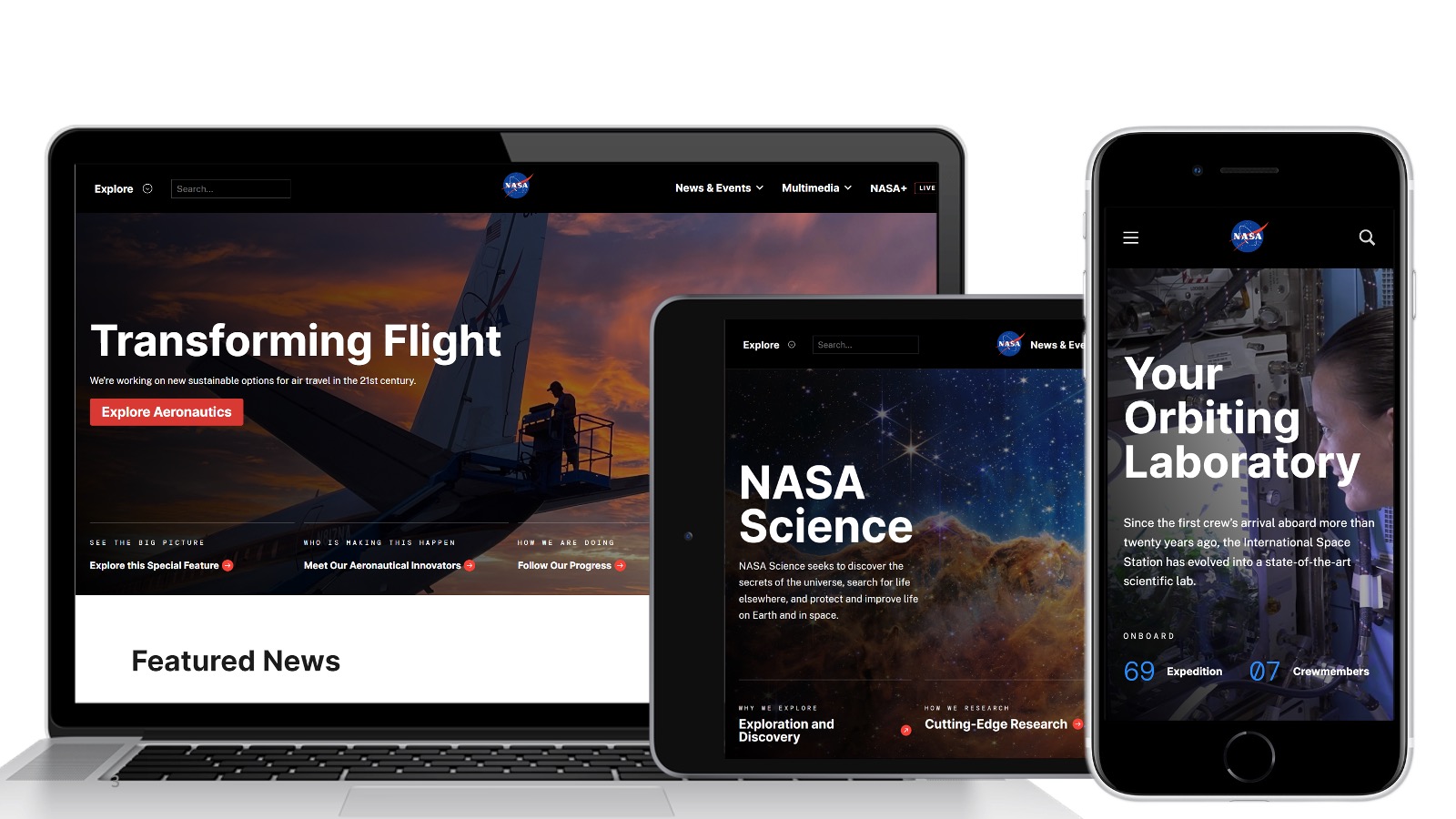Get ready to embark on a thrilling journey through the cosmos, right from the comfort of your home! NASA, the world’s pioneer in space exploration, is set to launch its very own streaming service, NASA+. This exciting development is set to revolutionize how we consume NASA space news and updates.
NASA+ is designed to be an ad-free, cost-free streaming platform. It will offer live coverage of future space launches, making it a must-have for those who love to stay updated with the latest in space exploration. But the offerings of NASA+ don’t stop there. The platform will also host a variety of documentaries and exclusive original series, making it a treasure trove of content for space enthusiasts.
Marc Etkind, NASA’s associate administrator of communications, expressed his enthusiasm about this new venture. He said, “We’re putting space on demand and at your fingertips with NASA’s new streaming platform.” This statement underlines NASA’s commitment to making NASA space news and stories of exploration, discovery, and innovation more accessible to the public.
The NASA+ streaming service will be available on multiple platforms. You can access it via the NASA app on iOS and Android mobile and tablet devices. It will also be available on streaming media players such as Roku, Apple TV, and Fire TV. For those who prefer watching on larger screens, NASA+ will also be accessible on the web via NASA’s new beta website.
This new web experience will serve as a hub for all things NASA. From information about the agency’s missions and research to climate data and Artemis updates, the website will have it all. The updated nasa.gov and science.nasa.gov websites will provide a topic-driven experience, making it easier for users to find the NASA space news they’re interested in.
NASA has been using NASA TV for its video content and launch streams, running a 24/7 slate of content on both the NASA site and YouTube. However, with the launch of NASA+, the agency is creating a dedicated space for viewers to access its content.
Jeff Seaton, NASA’s CIO, emphasized that modernizing the agency’s main websites and streamlining how the public engages with its content online are the first steps toward making NASA’s information “more accessible, discoverable and secure.”
While the exact look and feel of the streaming service are still under wraps, the agency has hinted at a modern, streamlined interface. This suggests that users can expect a user-friendly experience, similar to other popular streaming services.
Other Ways to Stream Space News
While the upcoming NASA+ streaming service is an exciting development for space enthusiasts, it’s not the only way to stay updated with the latest in space exploration. Here are some other platforms where you can stream space news:
- NASA TV: Even before the launch of NASA+, NASA TV has been a reliable source of space news. It offers a 24/7 slate of content, including live coverage of launches, press conferences, and special reports. You can access NASA TV on the NASA website and YouTube.
- SpaceX: SpaceX, the private aerospace manufacturer and space transportation company founded by Elon Musk, also broadcasts its launches and missions live on its website and YouTube channel.
- European Space Agency (ESA) TV: The ESA also streams live launches and hosts a variety of content related to its missions and research on its website.
- YouTube Channels: There are several YouTube channels dedicated to space news. Channels like “Fraser Cain”, “Scott Manley”, and “Everyday Astronaut” provide regular updates, analysis, and explanations of space-related topics.
- Social Media: Many space agencies and private space companies have a strong presence on social media platforms like Twitter and Facebook, where they regularly post updates and news.
- Podcasts: If you prefer audio content, there are numerous podcasts dedicated to space exploration. “StarTalk Radio”, hosted by Neil deGrasse Tyson, and “Planetary Radio” by The Planetary Society, are just a couple of examples.
- News Websites: Traditional news websites like CNN, BBC, and others often have sections dedicated to space and science news. They cover major events and provide analysis and context.
Remember, while NASA+ will be a fantastic resource for NASA space news, it’s always a good idea to diversify your sources to get a comprehensive understanding of the field. Happy exploring!

